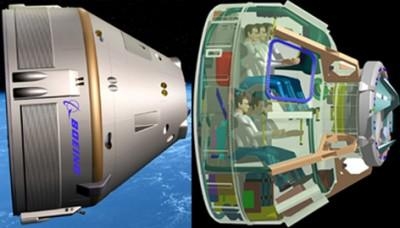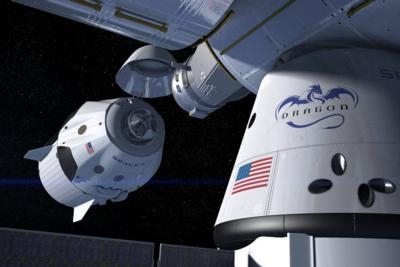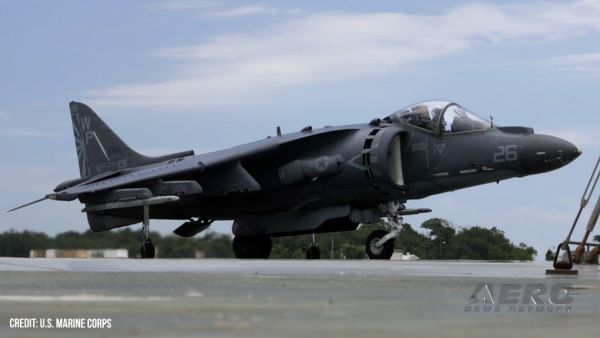Tue, Jan 30, 2018
First Unmanned Tests For Boeing And SpaceX Not Planned Until Later This Year
NASA has updated its information concerning the tests and eventual operational status for its Commercial Crew programs that will carry astronauts to ISS from a U.S. Spaceport. But it's not likely to happen until at least sometime in 2019, and maybe not until 2020.

Spaceflight Insider cites Ars Technica in reporting that both Boeing and SpaceX have said they are confident that unmanned flights will occur this year, but there is skepticism in Congress, particularly among members of the House Subcommittee on Space during a recent hearing.
Similarly, a GAO report released January 17 indicates that both companies continue to experience schedule delays. "Such delays could jeopardize the ability of the NASA Commercial Crew Program to certify either company’s option—that is, to ensure that either option meets NASA standards for human spaceflight—before the seats the agency has contracted for on Russia's Soyuz spacecraft run out in 2019," the report states.
GAO's ongoing work has identified three key risks, which are consistent with challenges reported in February 2017 that could further delay certification of each contractor’s crew transportation system:
- Aggressive schedules—NASA, Boeing, SpaceX, and independent review bodies have all noted that the contractors’ schedule plans are aggressive. The anticipated schedule risks have since materialized.
- Programmatic and safety risks—SpaceX and Boeing are addressing technical risks, which is not uncommon for NASA projects as they often push the state of the art in space technology. In addition, the contractors’ systems must meet a standard for crew safety. Additional work remains to determine whether the contractors will meet this requirement.
- Program office workload—Program officials told GAO that one of their greatest upcoming challenges will be to complete two oversight activities—conducting phased safety reviews and verifying that contractors meet requirements—concurrently. The program’s ability to smooth its workload is limited, as the contractors generally control their development schedules. In February 2017, GAO found that proposed schedule changes could alleviate some overlap.

Delays and uncertain final certification dates raise questions about whether the United States will have uninterrupted access to the ISS after 2019, and may lessen NASA’s return on investment with the contractors. GAO says it will continue to assess the contractors' and program’s progress.
(Source: GAO report and as cited. Images from file)
More News
Minimum Friction Level The friction level specified in AC 150/5320-12, Measurement, Construction, and Maintenance of Skid Resistant Airport Pavement Surfaces, that represents the m>[...]
Aero Linx: Airpower Museum The APM owns 30 acres on Antique Airfield, including the south half of the N-S runway. It consists of three hangars, an annex, and a library. The museum >[...]
Patient Told The First Responders That The “Man Who Was In The Plane Was Flying At The Time Of The Accident And Had Overshot The Runway They Were Attempting To Land On.&rdquo>[...]
Klyde Just Can't Believe This Has Gotten To This Point... FMI: www.klydemorris.com>[...]
Also: Duffy Wants $$$, KS Airports, Morningside U’s Aviation School, New Airstrip In ID After 6 were killed in a helicopter crash over the Hudson River, several US Representa>[...]
 ANN's Daily Aero-Term (06.02.25): Minimum Friction Level
ANN's Daily Aero-Term (06.02.25): Minimum Friction Level ANN's Daily Aero-Linx (06.02.25)
ANN's Daily Aero-Linx (06.02.25) NTSB Prelim: Champion 7ECA
NTSB Prelim: Champion 7ECA Classic Klyde Morris (From 06.10.22)
Classic Klyde Morris (From 06.10.22) Airborne 05.30.25: Anti-Helicopter Bill, PW Strike Done, All-Electric Bristell
Airborne 05.30.25: Anti-Helicopter Bill, PW Strike Done, All-Electric Bristell




